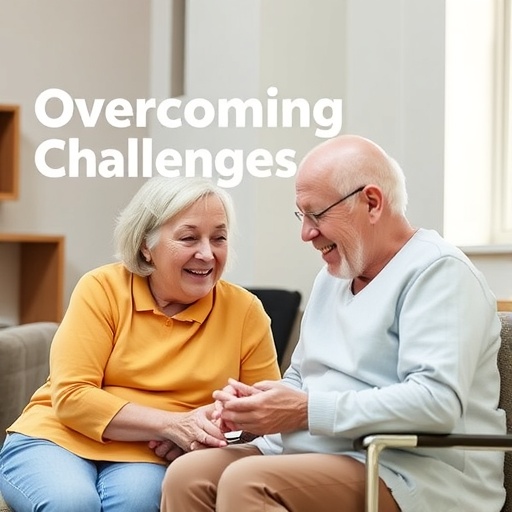In the landscape of healthcare, the journey of childhood, adolescent, and young adult cancer survivors has become an increasingly significant topic of discussion and research. A recent systematic review conducted by de Beijer and colleagues sheds light on the multifaceted barriers and facilitators that impact long-term follow-up care for these vulnerable populations. The findings emphasize the importance of tailored healthcare strategies that cater to the unique needs of cancer survivors as they transition into adult health systems.
Survivorship care is complex and often fraught with challenges. Recognizing these challenges is pivotal for improving the health outcomes of individuals who have triumphed over childhood cancers. The systematic review analyzed data from various studies to identify common hurdles faced by survivors in accessing consistent and quality follow-up care. These obstacles can range from logistical issues, such as transportation or insurance barriers, to psychological factors like anxiety and a lack of awareness about the importance of regular health check-ups.
One critical barrier identified in the review was the disconnect between pediatric and adult healthcare systems. Many survivors find themselves caught in a gap where pediatric oncologists no longer provide care, yet adult providers may lack familiarity with the specific long-term health issues faced by this demographic. This disconnect can lead to delays in healthcare access and inadequate management of late effects of cancer treatment, which can manifest years after the initial diagnosis.
Furthermore, the study highlighted how socioeconomic factors can significantly influence access to follow-up care. Survivors from lower-income backgrounds may struggle to secure the necessary resources for consistent follow-up appointments, which places them at greater risk for adverse health outcomes. This socioeconomic divide underscores the need for healthcare systems to mitigate disparities and provide equitable care for all survivors, regardless of their financial status.
On the other hand, the research also identified facilitators that can enhance access to follow-up care. Establishing strong communication channels between healthcare providers and survivors is paramount. Survivors benefit greatly from care coordination that ensures they are informed about their health, including potential late effects of their treatment. When healthcare teams engage survivors through personalized communication, it fosters a sense of belonging and encourages individuals to actively participate in their health management.
Moreover, support networks play a crucial role in empowering survivors. Peer support groups and survivorship programs can offer significant emotional backing and practical advice during a time when many may feel isolated in their health journeys. These networks not only provide emotional sustenance but also serve as a source of information about navigating the complexities of long-term follow-up care, which is vital for their ongoing well-being.
The increasing awareness of the unique healthcare needs of childhood cancer survivors has led to the development of specialized survivorship care plans. These plans are designed to systematically address the physical and psychological health issues that may arise after cancer treatment. Involving survivors in the creation of their care plans encourages self-advocacy and allows them to take ownership of their health journey.
Additionally, integrating technology into follow-up care processes is an innovative approach that can enhance access and communication. Digital health tools such as telemedicine services, patient portals, and reminder apps can facilitate easier access to care and improve appointment attendance rates. As technology continues to evolve, it presents a promising avenue to address barriers and streamline the follow-up care process for cancer survivors.
The healthcare community must also prioritize training for adult care providers to adequately address the specific needs of childhood cancer survivors. Enhancing provider education ensures that when survivors transition to adult healthcare, they receive appropriate screenings and follow-up care tailored to their history of cancer and its treatment. This educational initiative can lead to better health outcomes and more confident transitions into adulthood.
In conclusion, the systematic review conducted by de Beijer and team delivers critical insights into the barriers and facilitators associated with long-term follow-up care for childhood, adolescent, and young adult cancer survivors. Understanding these dynamics is essential for developing targeted interventions that promote better health outcomes and enhance the quality of life for this unique population. As society progresses in addressing the healthcare challenges faced by cancer survivors, it is imperative to create inclusive systems that support their long-term health and well-being.
The journey of cancer survivorship is ongoing, and as research continues to uncover new insights, it is our collective responsibility to advocate for and implement strategies that will bridge existing gaps and cultivate a nurturing environment for survivors. Through concerted efforts from healthcare providers, policymakers, and communities, we can ensure that cancer survivors are not only treated successfully but also supported in their lifelong health journeys, fostering a future where they can thrive and contribute significantly to society.
Subject of Research: Long-term follow-up care for childhood, adolescent, and young adult cancer survivors.
Article Title: Barriers and facilitators associated with long-term follow-up care for childhood, adolescent, and young adult cancer survivors: a systematic review.
Article References:
de Beijer, I.A., Trollip, J., van den Oever, S.R. et al. Barriers and facilitators associated with long-term follow-up care for childhood, adolescent, and young adult cancer survivors: a systematic review. BMC Health Serv Res 25, 1331 (2025). https://doi.org/10.1186/s12913-025-13363-8
Image Credits: AI Generated
DOI:
Keywords: Childhood cancer survivors, long-term follow-up care, barriers, facilitators, survivorship care plans, healthcare systems, peer support, technology in healthcare.
Tags: barriers to healthcare access for survivorschildhood cancer survivorship challengeshealthcare system disconnect for young adultsimportance of regular health check-upsimproving health outcomes for cancer survivorslogistical challenges in follow-up carelong-term care for young cancer survivorsmultifaceted issues in long-term cancer carepediatric to adult healthcare transitionpsychological factors in cancer survivorshipsystematic review of cancer survivorshiptailored healthcare strategies for cancer survivors





